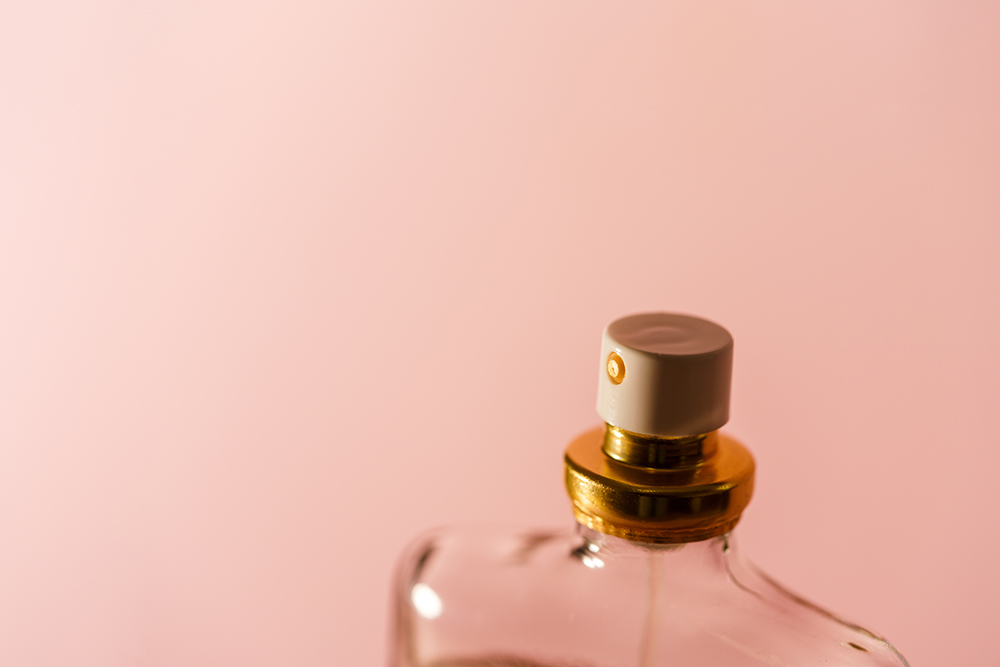
Ah, the scents of one’s youth! What hot, sour teenage kisses and grinding youth club discos would be conjured up for me by one whiff of Aqua Manda or the original Charlie. Adelle Stripe has constructed a memoir around 18 key fragrances, one for each chapter of her life, but true perfume addicts may find ‘the juice’ somewhat lacking. It might just be scented scaffolding, but fortunately the story underneath is captivating.
Dune, CK One and the rest do not trigger madeleine-like waves of memory for Stripe; neither is this a paean to the olfactory art. The perfumes crop up casually rather than crucially: her dairy farmer father’s ancient bottle of Brut; her hairdresser mother’s Rive Gauche; a friend’s cloying Angel, which ‘fills every corner of the room like tear gas’. Under each chapter heading is a freestyle, hallucinatory evocation of era and scent, reading like discarded advertising material. (Giorgio Beverly Hills is ‘Porsche and Ferrari on Rodeo Drive… Alexis Carrington. A shag-pile carpet. No knickers, fur coat’.) Stripe lists each constituent, so Clinique’s Happy, another of her mother’s favourites, features ‘mandarin, clementine, green bergamot…’
While some pairings are on the nose, others seem almost random. Elizabeth Arden’s rosy Red Door evokes a grandmother, and Hugo by Hugo Boss a sweet boyfriend. Trésor eradicates the fug of body odour in charity shop finds, but that chapter’s most striking scene is of a cow being helped to expel a dead calf. For Stripe, it’s the pungent and unpleasant that has most impact: the stink of London in summer (‘armpits on the Tube, unbrushed teeth, overflowing bins’); the way Kiehl’s Original Musk (‘bergamot nectar, neroli and lily’) can’t dispel the stench of ‘brown sewage water’ released in a flood; the ‘citrus cleaner masking the familiar base note of human-soaked fabric’ in a care home. Stripe’s own nose renders her highly self-conscious. At school it ‘is twice the size of anybody else’s your age’. (The second person is used throughout.) ‘Boys have started running past you pretending to be aeroplanes.’
The Body Shop’s cheap and cheerful Dewberry, a teenage gateway drug to the YSLs and Diors of the future, pervades the most horrifying chapter. The first inklings of sexual attraction – ‘Grown men are suddenly being nice to you!’ – are swiftly followed by brutal disillusionment, as a lift home from a local footballer turns predictably grim. The account is all the more affecting for its lack of detail, as if experienced in a disassociated state (‘You try not to look at what is in his hands’). Afterwards, driving her back to town, he says: ‘I’m sorry, love. Let me give you a present.’ His comically inappropriate ‘present’ is promptly buried in the garden, though the trauma surfaces more often than the shin pads, and flavours the rest of the narrative.
The confusion, desperation and drugs that follow are indeed just the base notes; top notes of humour, insouciance and bravery lift the story into art. The mother is an explosion of exuberance whenever she appears, goading or coaxing her fearful child into activities such as swimming or ice skating (though it’s odd that Stripe seems to think ‘reticent’ means ‘reluctant’). Earthworm by Demeter, in the briefly fashionable genre of gimmick scents (others being Crayon and Tomato), flavoursa hair-raising trip to New York without a safety net.
Stripe, now a little more streetwise, arrives with little money and no accommodation booked, and has to cadge a bed from a doorman charmed by her English accent. The hotel he patrols is rough, but still far too expensive. Traipsing home with him might be dangerous, but ‘you… have little choice when faced with a night at a stranger’s house or a night on the streets sleeping under pizza boxes’. The favour comes with expectations, as favours often do. But the boss of the East End leather firm where Stripe subsequently works is one of the rare heroes of the story, offering kindness with no comeback. Another is the gay man who provides the perennially homeless Stripe with a brief haven in Edinburgh, to the disgust of his boyfriend.
Pin-sharp observation renders even tragic material palatable. A youth spent in Tadcaster brings familiarity with the lineaments of alcoholic despair. A job as pub barmaid is an inevitably short-term solution:
Some of your regulars are rake-thin, with exploded raspberry noses and have a peculiar lurching walk, as if they are holding marbles in their underpants or shaking a used sock from the inside of their trouser legs.
The account of work on a sex chatline is wistful, sad and funny.
The book culminates in a trip to Grasse, the home of perfumery, where Stripe works with a ‘Nose’ to create a personal fragrance to commemorate her dead mother. The experience merely demonstrates that the finest ingredients don’t guarantee success. Stripe’s literary concoction, on the other hand, smells just great.







Comments